The Kindergarten Experience



Khan Lab School strives to prioritize the independent learner, collaboration with peers, and help students understand their place in the school community.
We encourage our students to learn the fundamental building blocks necessary for a solid educational foundation. By helping them hear their own voice,
develop their own interest, and follow their own passions, students are encouraged to find and forge a path unique to themselves.
By using a combination of discussion and hands-on learning, we aim to help our students understand and retain the material in a meaningful way.

We believe learners should be provided with the content, tools, space and encouragement they need in order to take charge of their own learning.

Hannah graduated from San Jose State University with a BA in Behavioral Sciences and completed her student teaching requirement for a Multiple Subject Teaching Credential and Masters of Education in 2022. She is especially interested in progressing her knowledge in the teaching of reading and writing among English Language Learners.

Jayme is originally from Taiwan, the home of her favorite food—bubble tea—but she came to the United States to study at Teachers College, Columbia University in the City of New York, where she got her master’s degree in TESOL. She has four years of experience teaching ESL to young kids and adults and would love to do it as a lifelong career.
“…the crucial task of education is to teach kids how to learn. To lead them to want to learn. To nurture curiosity, to encourage wonder, and to instill confidence so that later on they’ll have the tools for finding answers to the many questions we don’t yet know how to ask.”
– Sal Khan

A Sample Day in Kindergarten
8:30 Student Arrival/Outdoor Playtime
9:00 Morning Advisory
9:30 Phonics
10:00 Recess
10:20 Math
11:10 English Language Arts or Science
12:00 Lunch and Recess
12:45 Art, Music, or Outdoor Wellness
1:30 DEAR (reading time)
2:20 Recess
2:45 Free Choice and Wrap Up
3:30 Optional Extended Day Program
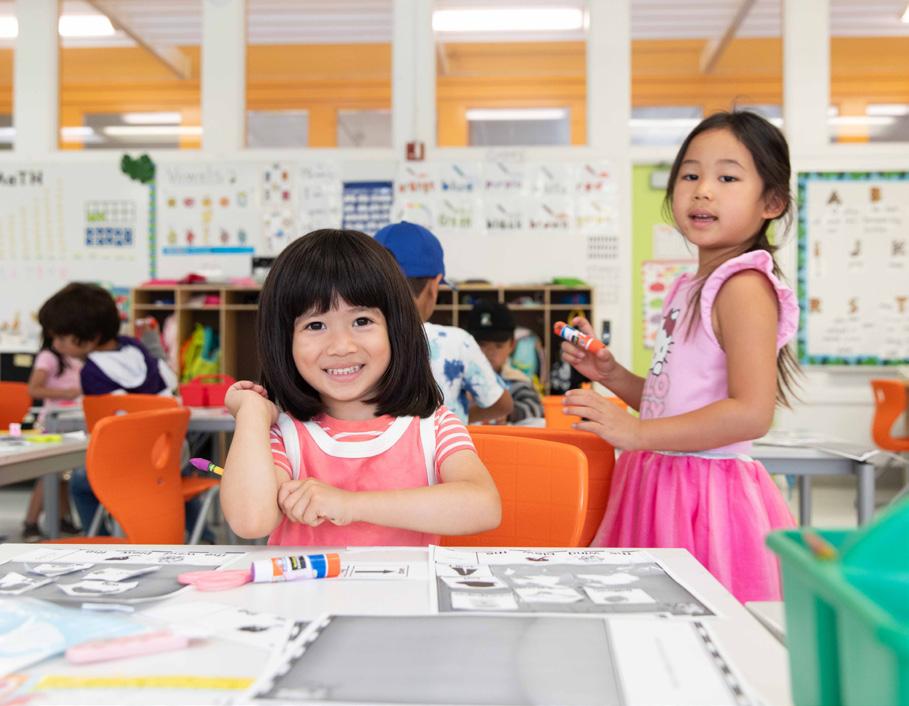
At our Lower School, the PATH (Purpose, Agency, Teamwork and Heart) framework represents the traits students should develop to navigate their path with compassion. PATH develops our relationships and builds community.
It’s not just limited to our learners; the PATH guides our approach to teaching—our teachers adhere to the same framework of traits that they strive to instill within the classroom. Under the umbrella of the PATH teachings, kindergarteners are both proud and quick to do something kind and help others. We instill in our learners that they should strive to leave their surroundings better than they found them—ultimately making the world a better place.
Science classes focus on life science, earth science, and engineering and design. Students engage in small group discussions and small projects with the intent to develop their social skills while learning. To cultivate problem solving abilities, critical thinking skills, and communication skills, students are given opportunities to work on small projects in groups, in which students observe, ask questions, and discuss together with peers.
You might see students observe and discuss how animals camouflage and what strategies they use, followed by a project focused on creating their own animals that can blend in with different surroundings.
We use differentiated math groups of varying levels to ensure that each student is receiving the support they need to learn and grow. Teachers incorporate math into outdoor activities, using objects from nature for counting and creating expressions.
Our focus is to make math interactive and engaging while still ensuring students are building fundamental skills.

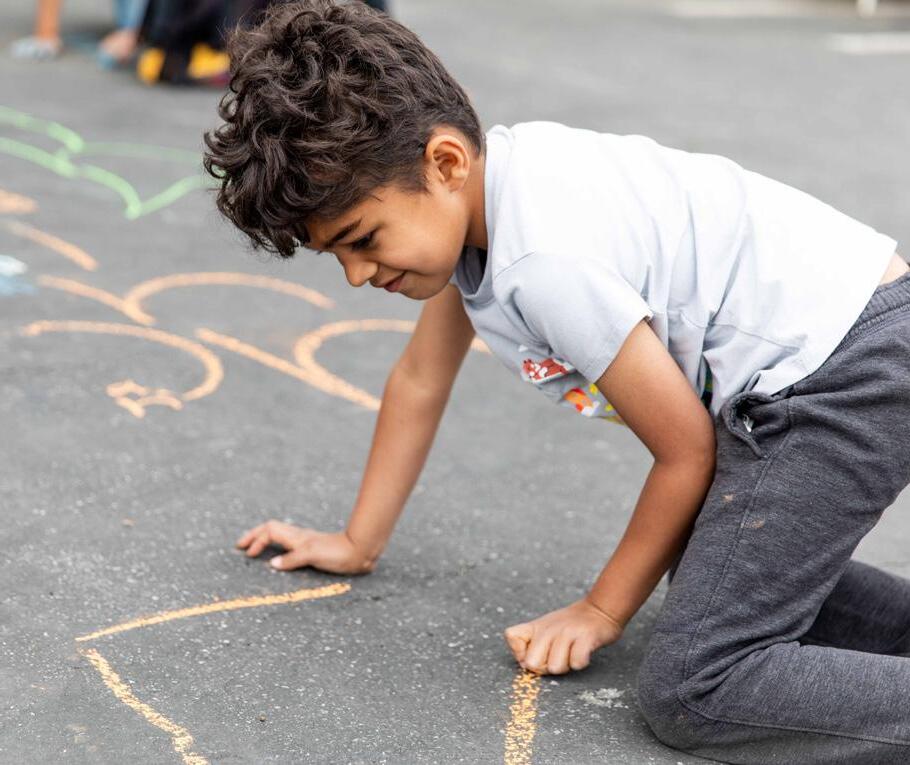

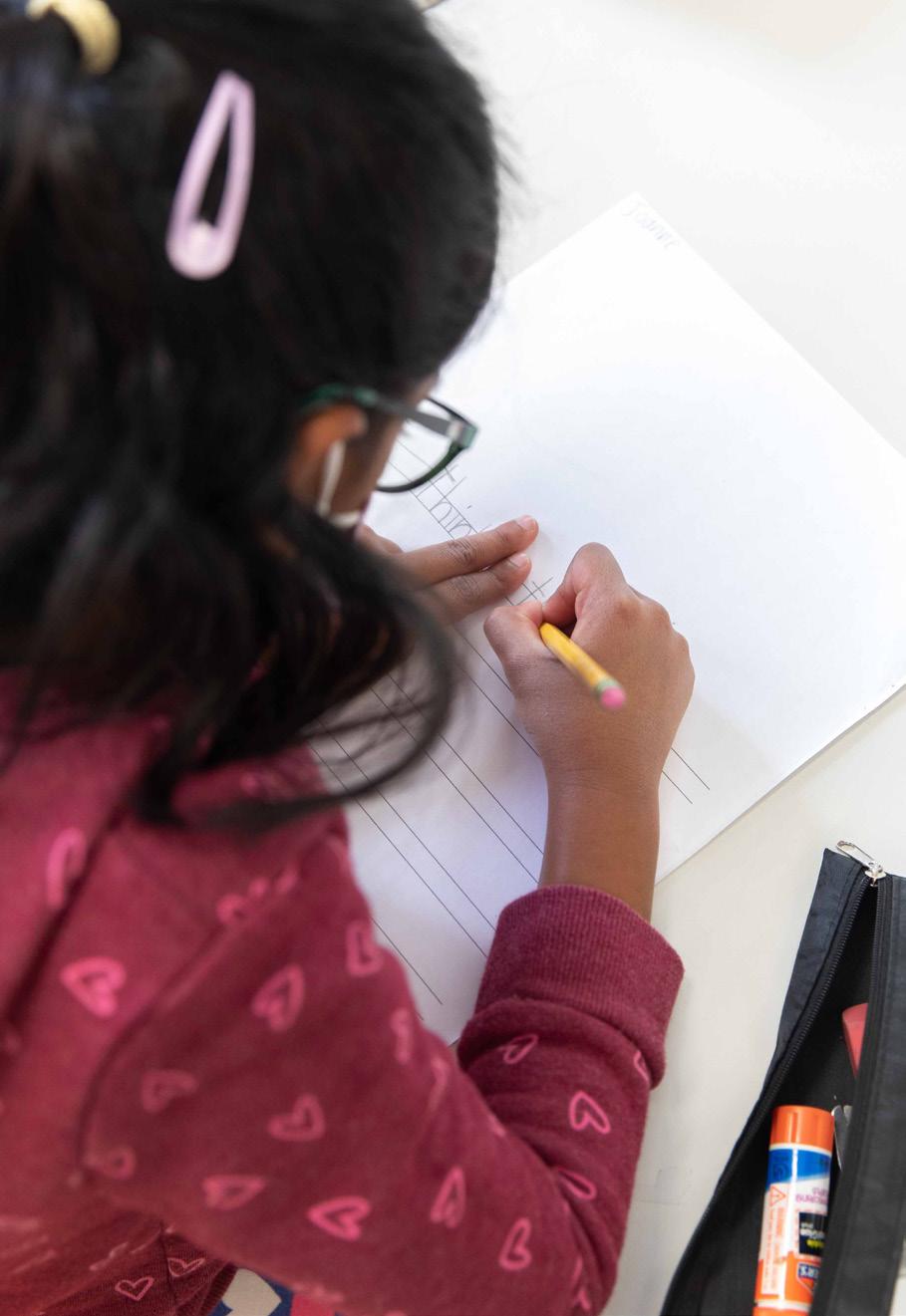


The Project Wayfinder curriculum is a key part of our advisory program, which is designed to help students develop foundational social emotional learning skills. In advisory, we focus on teaching self-awareness, collaboration, and empathy, as well as building the foundation for future skills such as adaptability, agency, and purpose. By helping students develop these important skills in the early years, we hope to equip them with the tools they need to succeed.
The communication and English language skills students develop in kindergarten provide strong foundations for mastering content across disciplines. Our fluency groups work on guided reading, phonics, spelling patterns, sight word practice, and one-on-one reading with a teacher in addition to our Handwriting Without Tears curriculum.
We utilize another curriculum called EL Education, where the focus is to help learners become successful readers, writers, and communicators, integrating the development of reading and writing skills with disciplines such as science, history, art, and geography.
The Lower School art curriculum is designed to develop students’ artistic literacy and nurture children’s curiosity and creativity. Through hands-on projects, it encourages self-expression all while teaching students to see and think as an artist.
The curriculum focuses on acquiring fundamental skills such as cutting and tearing paper, using paints and brushes, coloring with various materials, and modeling 3D objects. Students begin their exploration of the elements of design (line, shape, color, texture, pattern, and form). They learn and use art vocabulary to discuss their work and the work of other artists.
Kindergarteners love to sing! Although teachers will often incorporate music into the day, students also have music class where they begin the journey of developing music literacy. Through singing and creative movement, students learn melody, rhythm, and harmony. They explore various cultural contexts and musical forms, dramatize songs, and explore some instruments.

Students grow their motor skills and teamwork through fun games and sports. They learn the fundamentals of throwing and catching, running and jumping, then apply those skills in sports such as volleyball, basketball, soccer, and dance.

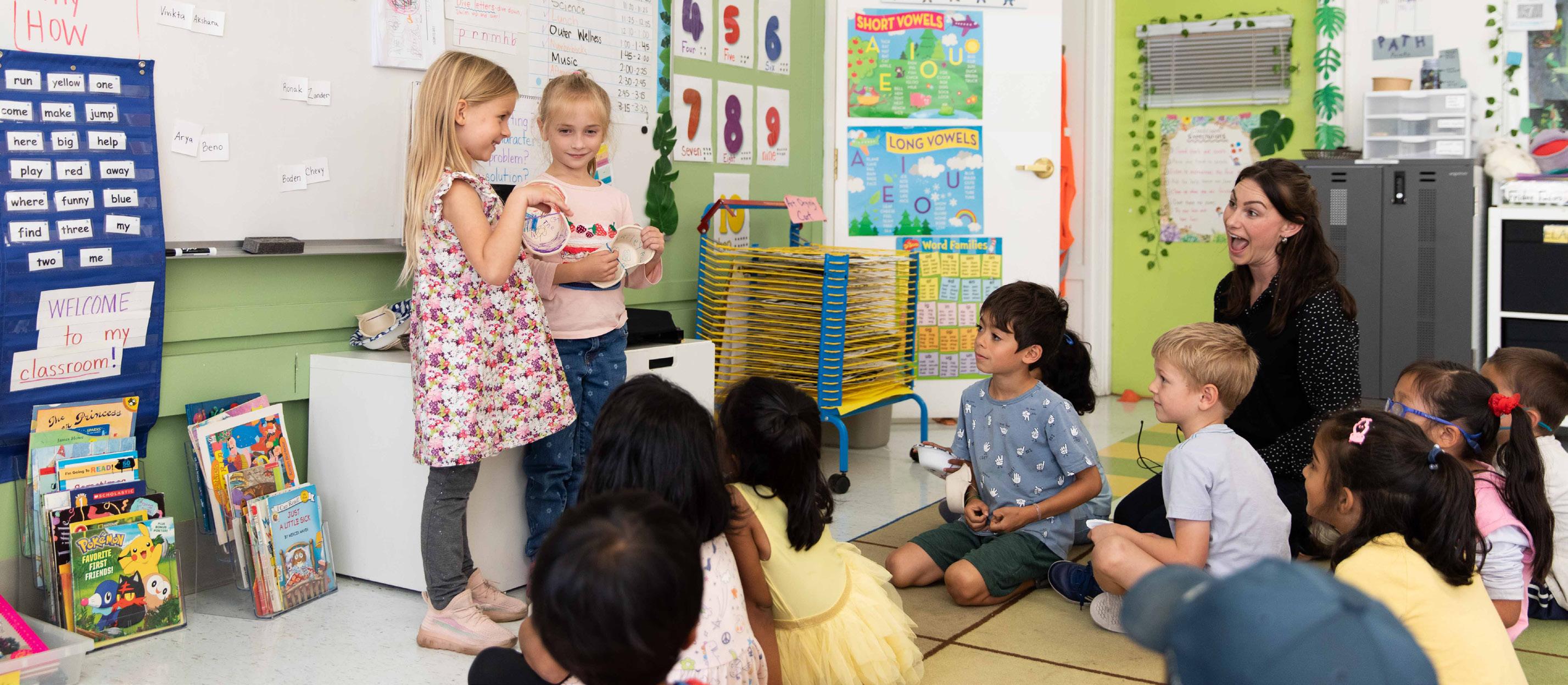
Social emotional learning (SEL) is incorporated into many aspects of the school day, including circle time and other daily activities.
We teach our students how to recognize and respond to their emotions and encourage them to talk about their feelings using puppets and role play to help students practice appropriate behavior.
We hope to help our students develop a deeper understanding of and empathy for others while building a strong sense of community among our students through promoting respect for diverse opinions and cultures. Teaching inclusivity and fostering a sense of belonging in the classroom creates an environment where individuality can thrive and everyone can contribute to the common good.
“Everyone wants to be a happy, kind person who can communicate effectively.” – Hannah
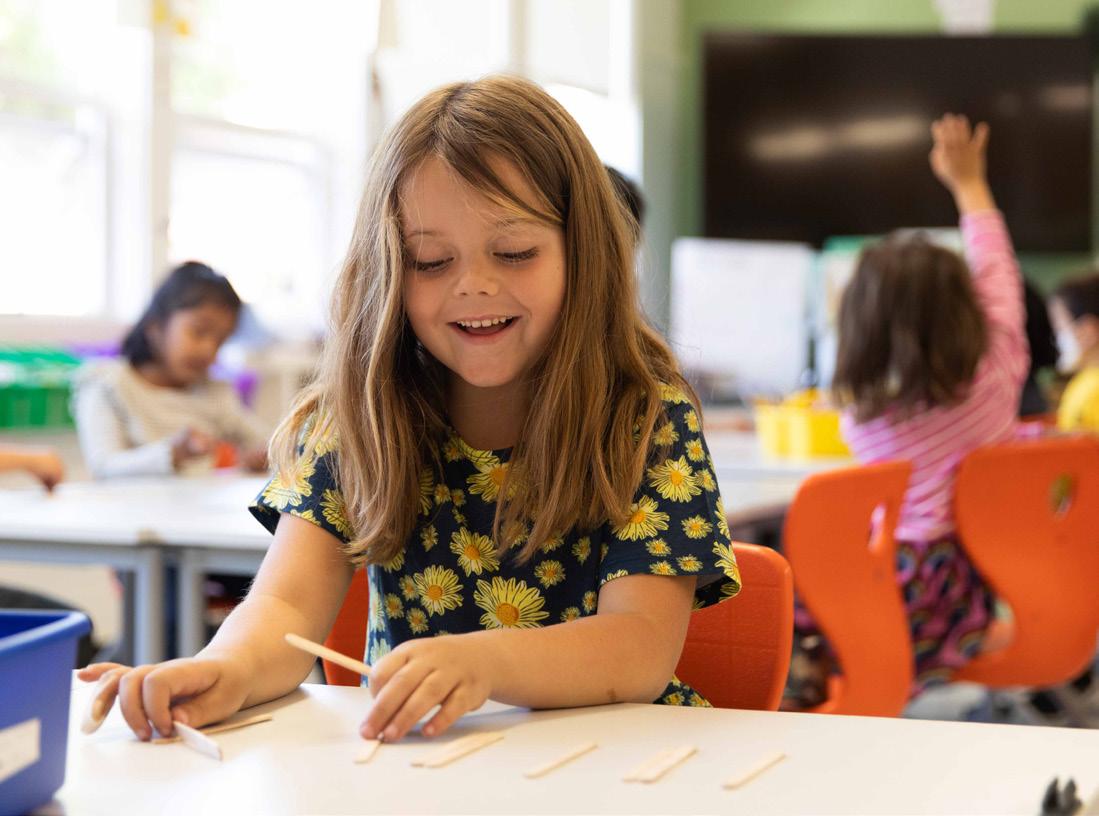
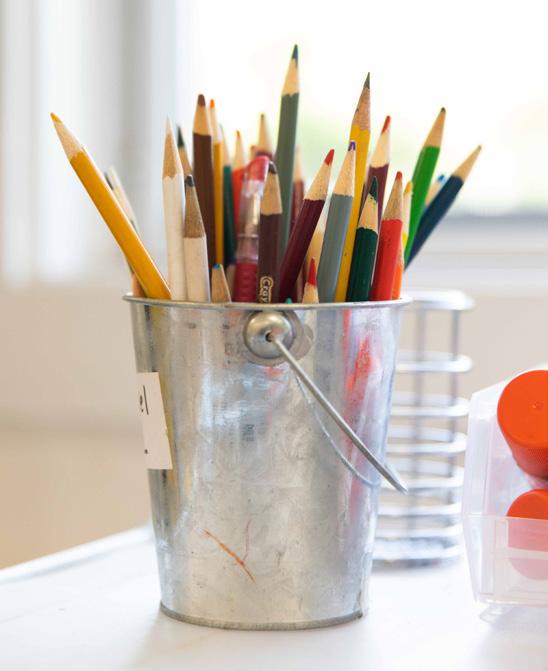
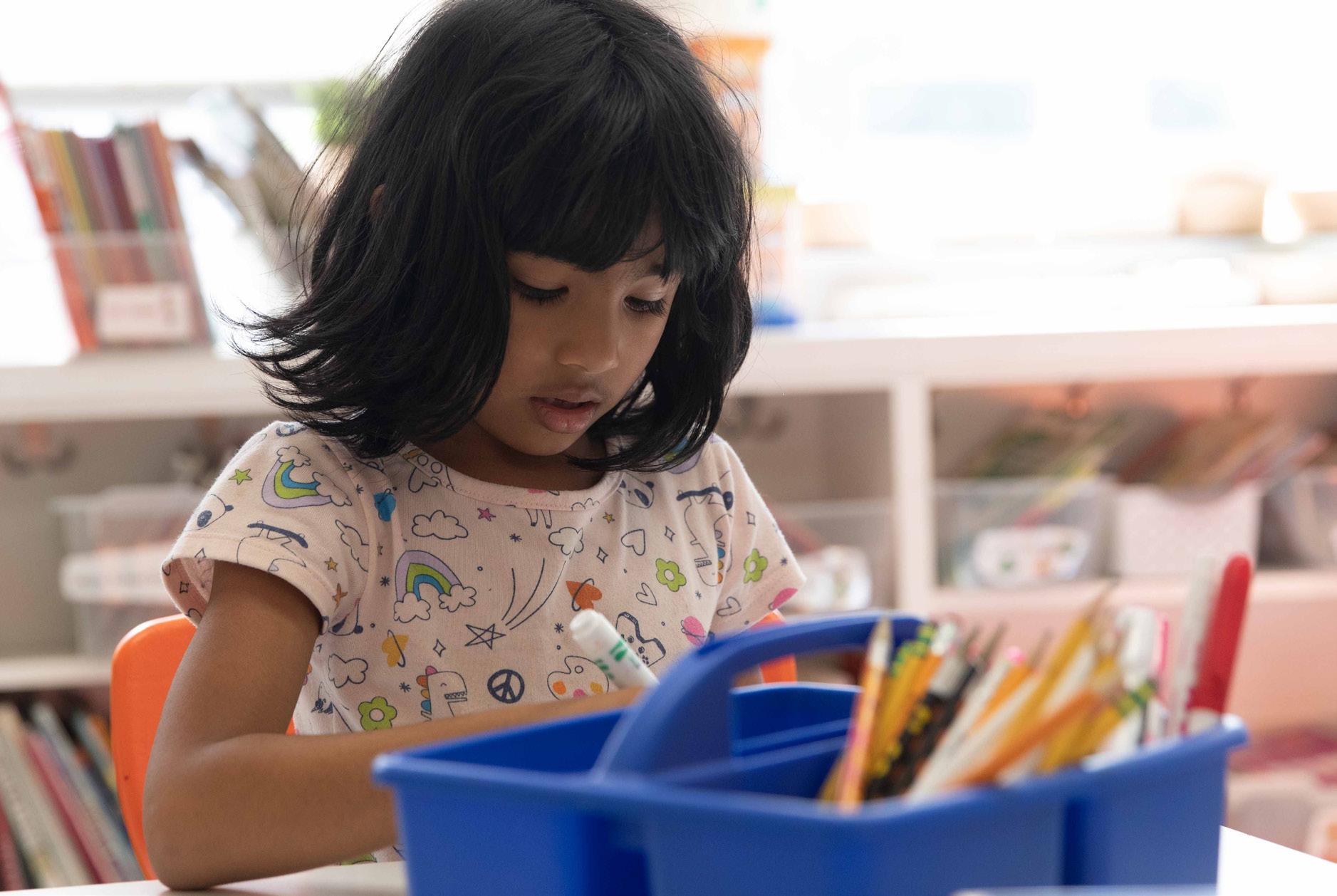
In class, students have two online tools: The reading app Lexia and ST Math. Using these apps for at least fifteen minutes, four times a week, they are able to refine their skills. In addition to using Lexia and ST Math, students practice high frequency words on a weekly basis.
With this combination of tools and techniques, students develop strong literacy and math skills.
Every afternoon, kindergarteners spend thirty minutes doing an activity of their choice. This self-directed time is important as it builds friendships, allows students to practice their fine motor and critical thinking skills, and fosters independence and creativity. Some of the activities include Play-Doh, Kinetic Sand, drawing, games, Magna-Tiles, and pretend play. It’s no wonder that this time is very popular among the kids!

At Khan Lab School, we believe that every student should have the opportunity and motivation to fill in gaps or improve their understanding of concepts. That’s why we use mastery levels instead of grades to assess students’ progress. This approach puts the focus on learning and encourages students to take ownership of their education by identifying the areas where they can improve.
In kindergarten, this may look like:
• Writing sentences independently
• Sequencing events independently
• Illustrations that match their text
• Listening to a prompt and responding appropriately
• Verbally explaining a concept, observation, their reasoning, or prediction
• Showing completion of an assessment within a standard
Students are assessed at the end of each unit or module. Based on their ability to show their understanding, thinking, and language clearly, they can do one (or all) of three things:
1. Move into a different reading/math group within their kindergarten class
2. Advance on Lexia or ST Math
3. Advance in their one-on-one practice with their teachers

With a focus on real world projects that develop PATH, content knowledge, and a love for learning, our PATH based kindergarten projects focus on growth. Our projects:
• Encourage students to discover what is meaningful to them and how to act with purpose, whether that involves exploring a topic, investigating a phenomena, or solving a problem.
• Foster student agency and the development of early executive skills, such as planning, focusing, remembering instructions, and completing tasks.
• Nurture social and emotional skills, such as empathy and collaboration, as students in Kindergarten work together and with other grades to learn from and teach one another.
• Engage early learners through highly active and authentic experiences outside the classroom and/or within the community.
• Support and equip kindergarten students with foundational reading, writing, and communication skills.
When a family chooses Khan Lab School, they are joining a community of learners. We are connected by an appreciation for our educational ideals in a setting that fosters collaboration, not competitiveness. Our graduates continue on to a variety of schools, all matched to their personal academic strengths and personal purpose.
To explore more stories about our school, choose a link below:
Website khanlabschool.org
Instagram @khanlabschool
Speaker Series
To speak with the admissions team, contact: admissions@khanlabschool.org
650-557-3334

“If kids can advance at their own pace , and if they’d be happier and more productive that way, why not let everybody do it? ”
— Sal Khan